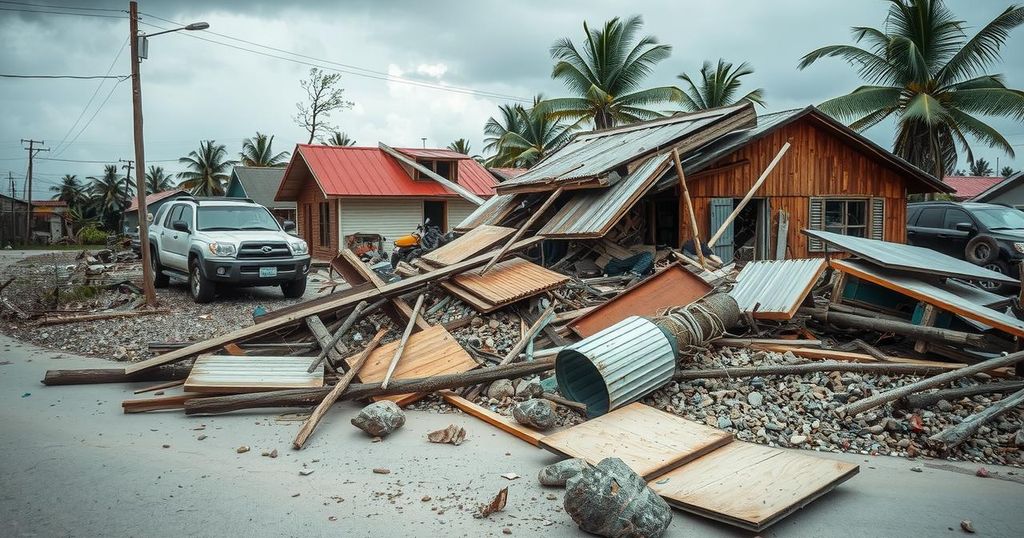Cyclone Chido has claimed 94 lives in Mozambique, injuring over 768 individuals and affecting more than 622,000 people. Initially impacting Mayotte, the cyclone struck Mozambique on December 15 with severe winds and rainfall. Education and healthcare sectors are heavily impacted, with thousands of students affected and numerous health facilities damaged. The government is mobilizing support for recovery efforts.
Cyclone Chido has tragically resulted in the deaths of 94 individuals in Mozambique since its arrival last week, according to local authorities. The National Institute of Risk and Disaster Management (INGD) reported 768 injuries and impacts on over 622,000 people due to the cyclone. Striking the country on December 15th with winds reaching 260 km/h (160 mph) and delivering 250 mm of rainfall within the first 24 hours, the storm has severely affected the northern provinces of Cabo Delgado, Niassa, and Nampula, which are historically prone to such disasters.
The cyclone’s toll has extended beyond fatalities, significantly disrupting the educational and healthcare sectors; approximately 109,793 students have been affected, with substantial damage to school infrastructure. Additionally, 52 health facilities have been compromised, risking access to crucial health services, particularly in areas already facing healthcare challenges before the cyclone’s onslaught.
In response to the calamity, Daniel Chapo, leader of Mozambique’s ruling party, reaffirmed the government’s commitment to mobilizing support at all levels. On a visit to Cabo Delgado, one of the most impacted areas, he stated that the government is collaborating with the INGD to aid the affected regions of Mecúfi, Nampula, Memba, and Niassa in their recovery efforts. This catastrophe in Mozambique follows Cyclone Chido’s earlier passage through Mayotte, which witnessed its most severe storm in 90 years, claiming at least 35 lives and causing extensive devastation to the local populace.
As the situation unfolds, it remains evident that many residents in Mayotte continue to struggle with a lack of basic necessities, despite the establishment of an air bridge to facilitate the delivery of essential supplies from Reunion and mainland France. Heightened concerns over access to clean water have prompted advisories for residents to boil water for safe consumption, with government officials distributing food and water to mitigate the dire circumstances. The cyclone emphasizes the precarious nature of social infrastructures in the face of climate change, necessitating enhanced resilience planning to confront future disasters.
Tropical cyclones, particularly in areas like Mozambique and Mayotte, pose significant threats characterized by high wind speeds, extensive rainfall, and subsequent flooding. These weather events can devastate infrastructure, significantly impacting communities that are already vulnerable. Research indicates a connection between climate change and the increasing intensity of these storms, as global temperature rises foster conditions conducive to severe weather. The growing frequency and severity of such cyclones underscore the urgent need for resilient infrastructure planning and disaster responsiveness, particularly in regions frequently affected by cyclones.
In summary, Cyclone Chido has wrought havoc in Mozambique, resulting in significant loss of life and injury while affecting hundreds of thousands of individuals. The cyclone has obliterated educational and healthcare facilities, further complicating recovery efforts. The government’s mobilization of resources and collaboration with local organizations is crucial in addressing immediate needs and laying the groundwork for future resilience against such climatic events. Additionally, the lessons learned in the aftermath of Cyclone Chido will be vital in shaping policies and preparedness strategies for impending natural disasters.
Original Source: www.bbc.com






